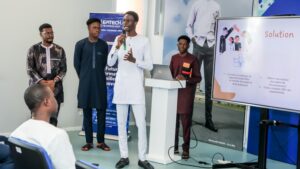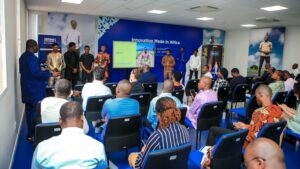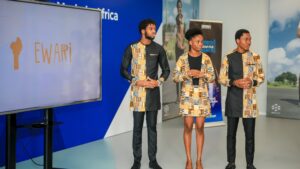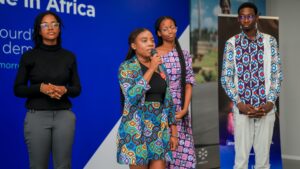At the beginning of 2023, our third-year students presented prototypes of their Epitech Innovative Projects (EIPs), which they will have to materialize over the next two years as part of the Epitech Experience 2025.

A few months after diving into the Moonshot Pool, the starting point of the Innovation Cycle, our third-year students presented the first versions of their Epitech Innovative Projects (EIPs) at the beginning of this year. These projects materialize in the form of computer solutions aimed at addressing global issues covering a wide range of topics, from climate to society, including health and the economy.
Over the past few months, our Tek3s have gone through several phases across all Epitech Technology campuses. First, they ideated their EIPs, following the Moonshot Pool, with the aim of putting their ideas down on paper. Then, they moved on to the Forward phase, the second phase of the Innovation Cycle, which involved prototyping these projects, in other words, building them from a technical point of view to obtain a Minimum Viable Product (MVP) that holds up.
The third phase, which took place at the beginning of this year 2023, consisted of pitching these solutions to professional juries, with the understanding that they are still destined to evolve until the Epitech Experience 2025. To hold you over until then, here’s a brief overview of the projects proposed this year by our third-year students.
The EIPs of Tek3 class of 2025, campus by campus
On the Bordeaux campus, the SouPourTous project particularly caught the attention of the jury and was voted as the best EIP project among the third-year students from Gironde. It is an application aimed at simplifying food donations by making them anonymous and secure, with alternative objectives of protecting the environment and combating waste.
Congratulations also to the VetCare project (the first digital health record linked to your pet’s chip) and the Medali project (a hospital bed management solution), which respectively obtained second and third place.
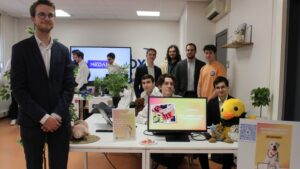


On the Nancy campus, the Leon’Art project and its solution for connecting artists and art enthusiasts won the jury’s favorite award. The award for the best presentation went to Hautgure and its tool for organizing and managing role-playing campaigns. Finally, the award for the most promising project was given to Little Management and its application that helps small business owners manage their shops.
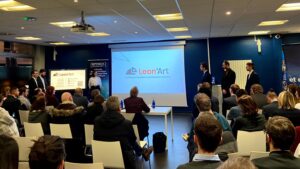
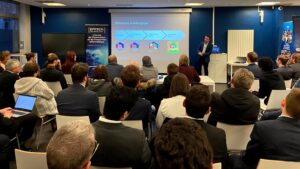
On the Toulouse campus, the Autone group was named the winner of these third-year EIPs and will defend their project in Paris in two years. It is a web and mobile application that allows musicians to convert music into sheet music, with customized pricing and an easy-to-use interface. Congratulations also to the Lexya project, a support platform for practitioners treating neurodevelopmental disorders, Wander AR, a company helping with internal mobility, and Tune’Up Music for their very interesting projects as well.
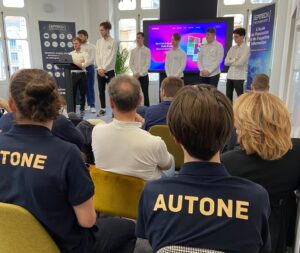
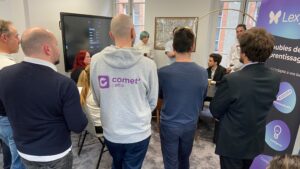
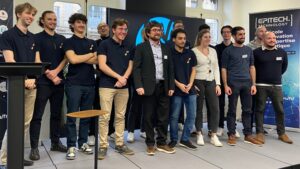
On the Réunion Island campus, students were able to present prototypes to visitors and professionals who came to the campus to discover their innovations. Congratulations to the IHO group, a solution for the well-being of parents and children, Phar, a tool that could revolutionize your relationship with music, SocialUP, an application designed to help with loneliness, and Streetless, for brilliantly defending their projects.
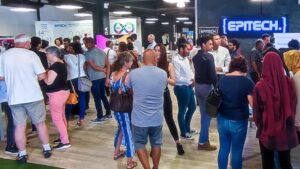
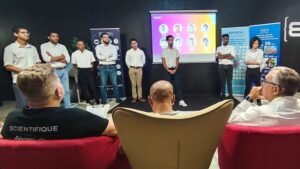
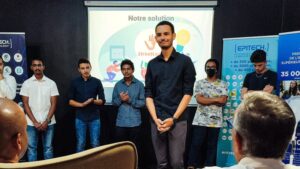
On the Marseille campus, the Greystock project, a website that connects customers with raw material suppliers, was named the winner of the Tek3 EIP, followed by SimplyFile and Gatek. Congratulations also to the other groups for their successful presentations.
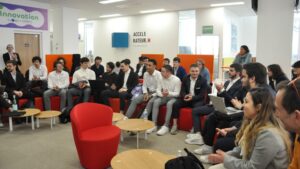
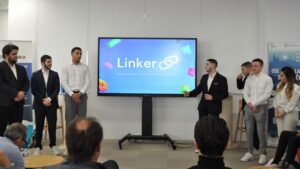
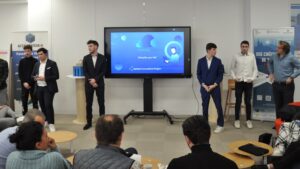
In Strasbourg, it was the Kinassist group, an application that helps physiotherapists and their patients during the rehabilitation period, that won the Best Idea trophy. The Kitrek team, a tool that makes hiking accessible to everyone through a route preparation management service, won the Best Pitch trophy as well as the Jury’s favorite award.
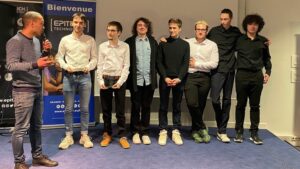
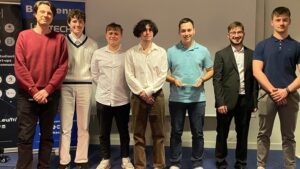
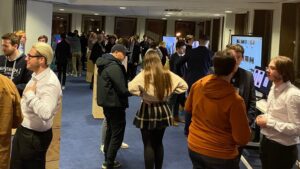
On the Lille campus, it was the Coverage group that won the Epitech Experience Tek3. It is a solution to optimize the management of insurance policies.
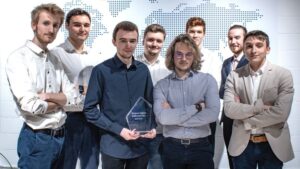
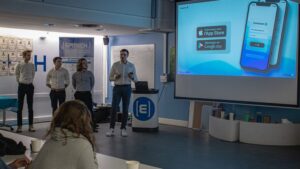
On the campus of Nantes, the jury was split between the group NoLoSay, a project aimed at improving accessibility for the deaf and hard of hearing in cultural venues, and the group Scandela, a tool for managing public lighting for local authorities. The Audience Award was given to Zonéo, a decision-making tool for students to help them choose the ideal place to settle.
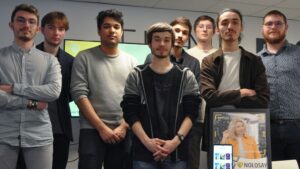
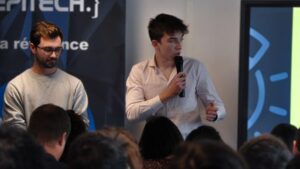
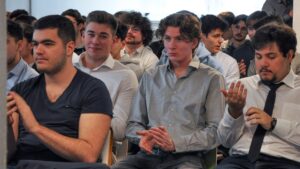
On the Montpellier campus, the group OKAZ’, a solution that promotes second-hand purchasing, was designated as the winner of these EIP Tek3. Another group, HANNAH, which aims to facilitate the daily lives of non-equipped deaf and hard-of-hearing individuals, was awarded the jury’s special prize.
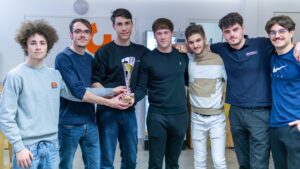
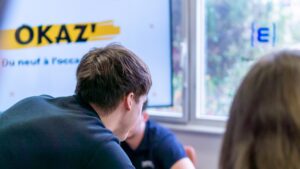
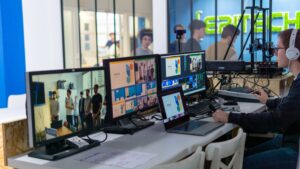
On the Mulhouse campus, the People’s Choice Award was given to Tidaly, a web and mobile application that allows users to track their water consumption in real-time. The project has already been awarded the IoT prize at the Hacking Industry Camp 2022 a few months ago.
Congratulations also to the other groups, Solervis, a modern and fluid barter solution via a platform, and Project Overland, halfway between software and video games, which allows users to play multiplayer role-playing games in an immersive way through a virtual reality mode.
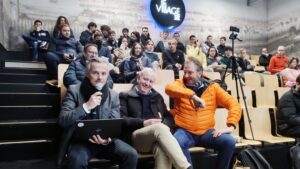
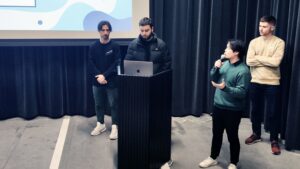
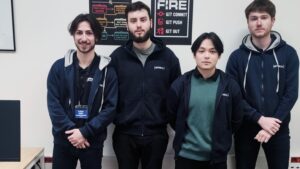
In Rennes, the group Yana, a social network aimed at bringing together individuals suffering from the same pathology or addictions, won over the jury and won a year of hosting on a server for their e-health platform. Congratulations also to the other groups, Kement, an application simplifying cash management for small and medium-sized enterprises (SMEs), and Schood, an interface for educational institutions aimed at improving communication between all parties (students, teachers, administration, etc.).
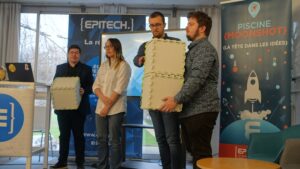
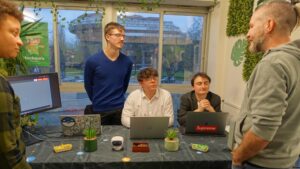
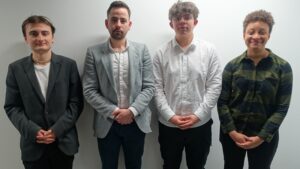
On the Nice campus, there is no winner but many ambitious projects! Congratulations to ELI, a social network for students to support them in their studies, SpriteUpdesign, a generator of graphic elements for video game developers, Veron, an application for raising awareness of ecology and climate change through virtual reality, See Eat, a virtual kitchen assistant that helps you plan and prepare meals on a daily basis, ARDeco, an application for apartment layout and decoration through augmented reality, Get’!n App, a cryptocurrency reward tool for athletes to encourage them, and AEGIS, a solution for securing and tracing luxury products.
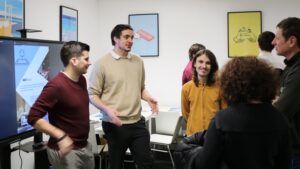
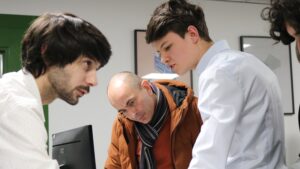
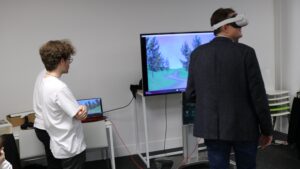
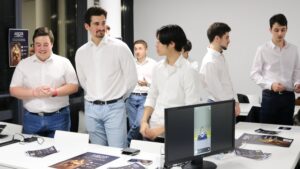
At the Lyon campus, there was no winning project, but there were a multitude of interesting presentations. These included Be Trip, a website that would allow young people going abroad to easily find information on the procedures to follow, as well as TousChezMarcel, a platform that connects elderly people with each other or with young people who want to give their time, and Edgar.care, a tool that reduces waiting time when making appointments with a healthcare professional.
Among the Lyon projects were Virtual Stadium, a virtual reality esports stadium, Luther, a web platform that avoids payment defaults or delays on freelance providers’ salaries, Timi, an application for a digital receipt, Dognostic, a connected collar with an application that allows the owner to monitor their dog’s health, Pixavox, a software that allows users to create 3D pixel objects, Trotter, an application that allows solo or group travelers to obtain an itinerary generated based on their desires, and Archo, an online software designed for rental management agencies that is fully customizable.
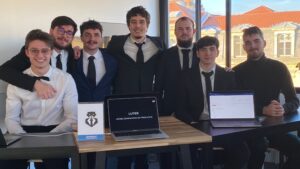
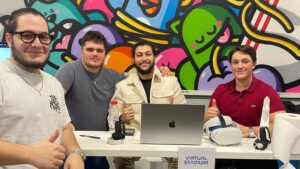
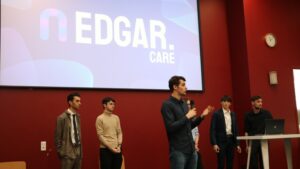
On the Paris campus, the EIP Tek3 winning group is HiVolunteer, a platform that connects associations in search of volunteers with individuals who want to participate in occasional volunteer missions. The Epitech Technology teams also congratulate the 19 other projects presented in the capital.
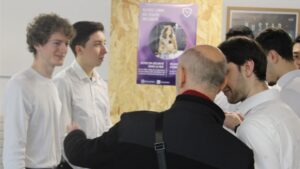
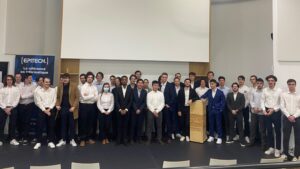
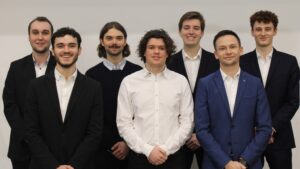
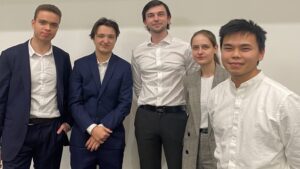
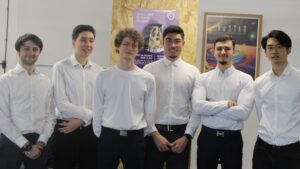
At our campus in Cotonou, Benin, no less than 8 projects were presented during these EIP Tek3. Africa Chronicles takes the form of an adventure video game to introduce 7-12 year olds to the cultural heritage of Benin. Another discovery application, Èwari, offers to explore the treasures of Beninese heritage. For young entrepreneurs, ESO is a solution to prepare for the risks and daily challenges of running a business. Getskills, on the other hand, is a tool to help young job seekers acquire skills.
Yemalin Location facilitates apartment search and connection between landlords and tenants, while Agrolink offers to connect landowners and young farmers looking for land. Train Your Lawyer is an application presenting many practical cases on which law students can cut their teeth. Finally, Transco offers a solution for data collection through motorcycle taxi drivers.
